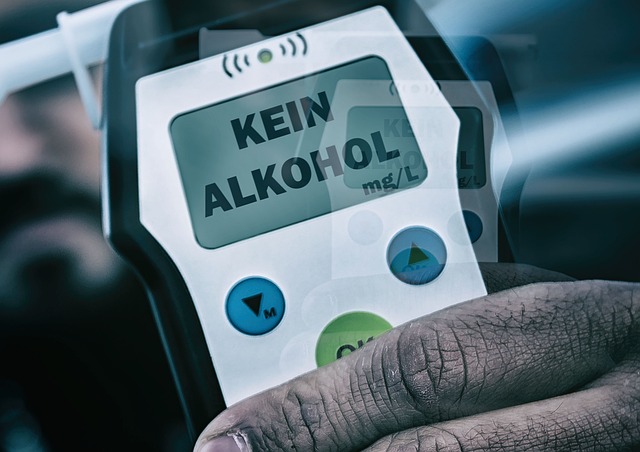Understanding international driving regulations is vital for safe travel. Global traffic laws vary widely in speed limits, safety features, and substance-related rules. Travelers must research local drug interaction and DUI laws, which can have severe penalties, to ensure compliance and responsible behavior while abroad. Consulting healthcare professionals beforehand and staying informed about destination guidelines are essential practices for international drivers.
International travel offers thrilling experiences, but navigating foreign roads requires vigilance. Understanding global driving regulations and staying informed about local laws are essential to ensure safe journeys. This comprehensive guide delves into critical aspects of international travel, focusing on drug interactions, their impact on driving ability, and navigating DUI laws across borders. We provide practical tips for adopting safe driving practices and avoiding common pitfalls when operating a vehicle abroad.
- Understanding Global Driving Regulations: A Comprehensive Overview
- Drug Interactions and Their Impact on Driving Ability
- Navigating DUI Laws Across Borders: What You Need to Know
- Safe Driving Practices for International Travelers
- Essential Tips for Avoiding Common Pitfalls While Driving Abroad
Understanding Global Driving Regulations: A Comprehensive Overview

When traveling internationally, understanding local driving regulations is paramount for safe mobility. Global traffic laws vary widely, encompassing different rules on speed limits, seatbelts, child restraints, and even vehicle standards. For instance, some countries have stricter penalties for speeding or DUI (driving under the influence), with enhanced fines and license suspensions. Others may have unique requirements, such as mandatory vehicle lighting during daylight hours or specific guidelines for driving in adverse weather conditions.
Additionally, travelers should be aware of drug interaction and local DUI laws. The global landscape regarding substance use behind the wheel is diverse. Some nations have zero-tolerance policies, with severe consequences for any detectable drug levels in a driver’s system. In contrast, others may employ impairment-based enforcement, focusing on how a driver performs rather than specific drug thresholds. Staying informed about these variations ensures compliance and promotes responsible travel experiences abroad.
Drug Interactions and Their Impact on Driving Ability

Many travelers carry medications while abroad, but it’s crucial to understand potential drug interactions that could impact your driving ability. Combining certain medications can result in adverse side effects, including dizziness, drowsiness, and impaired coordination—all of which hinder safe vehicle operation. Even over-the-counter drugs may interact with alcohol or other substances, enhancing their intoxicating effects. Before embarking on an international trip, consult with a healthcare professional or pharmacist to review your medication regimen. They can help identify potential interactions and offer guidance on managing symptoms, ensuring you stay within legal limits under local DUI laws.
Knowing the specific rules regarding drug use and driving varies across countries, it’s essential to research and comply with local regulations. Some nations have zero-tolerance policies, while others may allow certain levels of drugs in your system if prescribed by a doctor. Staying informed about these nuances can help travelers avoid legal troubles and ensure their safety on the roads.
Navigating DUI Laws Across Borders: What You Need to Know

When traveling internationally, understanding local driving laws is crucial, especially regarding DUI (Driving Under the Influence) regulations. Each country has its own set of rules and penalties, which can significantly differ from those in your home nation. For instance, many countries have zero-tolerance policies with stricter penalties for even minimal alcohol or drug interactions while driving.
Drug interaction and DUI law vary widely globally. Some nations may consider any detectable amount of drugs in a driver’s system as an offense, while others might only prosecute when it impairs judgment. It’s essential to research the specific laws of your destination country before hitting the road. Many countries offer clear guidelines for tourists, outlining what is permissible and what will lead to arrest and severe consequences. Always carry relevant documentation, such as prescription medication, if needed, to avoid misunderstandings.
Safe Driving Practices for International Travelers

When traveling abroad, familiarizing yourself with local traffic laws is paramount. Each country has unique regulations, including speed limits, lighting requirements, and signaling norms that all drivers must adhere to. International travelers should also be aware of specific rules regarding drug interactions and DUI (driving under the influence) laws, which vary significantly across borders.
To ensure safe driving practices, always consult your destination’s traffic guidelines, obtain an international driving permit if required, and remain vigilant about local customs and road conditions. Staying within speed limits, using indicators for lane changes or turns, and maintaining a safe following distance are basic yet critical safety measures to follow. Understanding the local DUI laws can help prevent serious consequences, so be informed and drive responsibly.
Essential Tips for Avoiding Common Pitfalls While Driving Abroad

When driving abroad, it’s crucial to be aware of local traffic rules and regulations to ensure safe travels. One common pitfall many overlook is understanding the local DUI laws and their strictness. Different countries have varying legal blood alcohol limits, and penalties for drunk driving can differ significantly. Researching these laws before your trip is essential, as they could result in severe consequences or even jail time.
Another critical aspect to consider is drug interaction and their legality. Some substances may be legal at home but heavily restricted abroad. Even over-the-counter medications can interact with certain drugs or alcohol, leading to unwanted effects or legal issues. It’s advisable to consult a healthcare professional before packing any medication and to be aware of the local laws regarding substance possession and use to avoid embarrassing or dangerous situations.
When embarking on international travel, understanding global driving regulations, staying informed about drug interactions, and knowing how DUI laws vary across borders are essential for a safe and enjoyable experience. By adhering to safe driving practices and avoiding common pitfalls while behind the wheel abroad, you can ensure a smooth journey and avoid costly mistakes. Remember to always prioritize safety when navigating unfamiliar road systems and legal frameworks.






